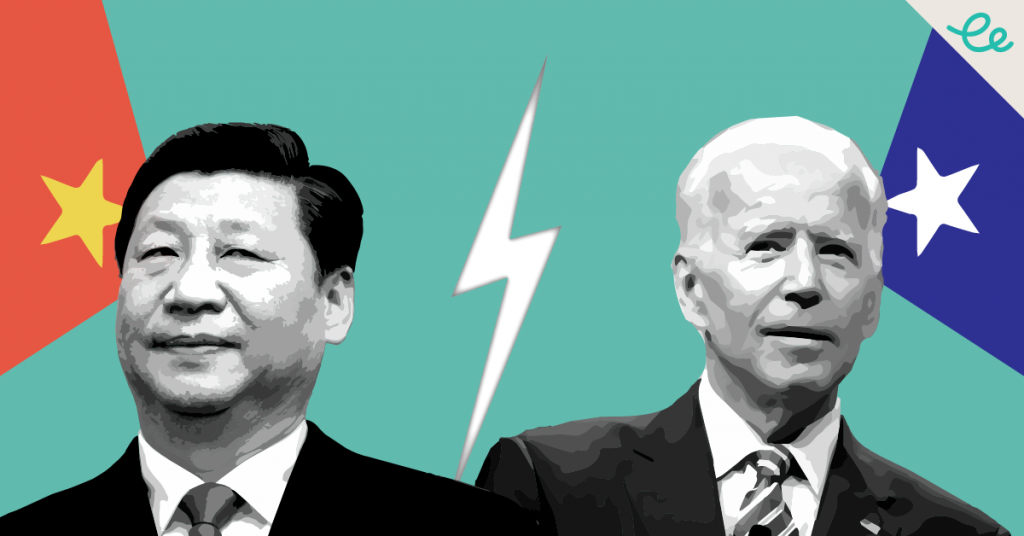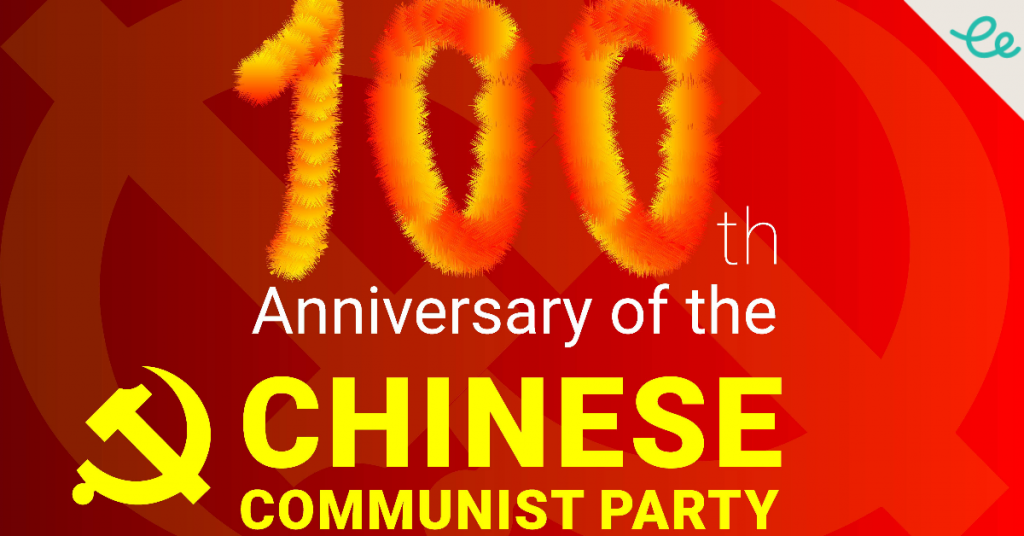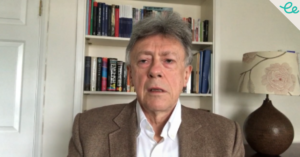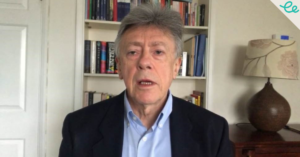In a year bookended by major events, Xi Jinping can’t back out of strict “zero-Covid” policy China and Xi Jinping should have plenty to celebrate in 2022. The Chinese New Year of the Tiger kicks off on 1 February. Three days later, the Beijing Winter Olympics begin, when Xi can showcase the Chinese Communist Party’s unrivalled organisational abilities. The year should climax with his triumphant emergence, after a crucial Party Congress this coming autumn, as Party chief for a third term. But Covid-19 threatens to spoil all these parties. Despite some of the toughest controls and protocols worldwide, China ended 2021 with Xian in lockdown. A spike in Covid-19 cases confined 13 million people to their homes, shuttered businesses, sparked complaints about food shortages – and led to tragedy. A top health official apologised in January over the miscarriage of an eight-month-pregnant woman. Footage went viral of a hospital refusing…
China Launches Beijing Stock Exchange
A guide to China’s newest stock market What Xi Jinping wants, he generally gets. In September 2021, Xi announced that the Chinese capital would set up the Beijing Stock Exchange (BSE) as China’s primary platform serving innovation-oriented small and medium-sized enterprises (SMEs). Just 74 days later, with the ringing of an old bronze bell, and red ribbons on a new nameplate, the brand-new bourse took flight. On November 15, the BSE kicked off with 81 listed companies and a turnover of $1.5 billion. This move complements the two main bourses, in Shanghai and Shenzhen, and marks another milestone in the expansion of China’s $12.4 trillion equity market, already the world’s largest after the American market. Let Enodo walk you through this development, significant both for Chinese and foreign investors. So, is this Beijing’s first stock market? No. The heritage-minded, stock exchange history enthusiast may hunt for the old building that…
US China Relations: Diplomats Meet – And Talk Past Each Other
Well, at least they met? After political and protocol wrangling symbolic of the troubled relations between China and the USA, Wendy Sherman, the US Deputy Secretary of State, was permitted to visit Tianjin from July 25-26, and meet her counterparts. And the meetings lived down to expectations. This article is a summary of important US China news in July 2021. The State Department at one point cancelled the China leg of Sherman’s Asia trip. Vice Foreign Minister Xie Feng set out lists of remedial actions that Washington must take to get relations back on track. The US should not challenge, smear and seek to subvert China’s socialist system with Chinese characteristics, should not interrupt China’s development or interfere in its sovereignty, Foreign Minister Wang Yi told her. A day later, in Singapore, US Defense Secretary Lloyd Austin said Washington did not seek a military clash with China but would challenge China’s…
This Party Keeps on Rocking
Xi Jinping spoke to China and the world from the balcony of Beijing’s Tiananmen Gate, on the 100th anniversary of the Communist Party’s founding Wearing a grey buttoned-up Mao suit, just like the Chairman himself on the same spot back in 1949, Xi Jinping spoke to China and the world from the balcony of Beijing’s Tiananmen Gate, on the 100th anniversary of the Communist Party’s founding. There was no mistaking this is Xi’s stage now – his fellow leaders wore western business suits and ties. As head of a 95 million-member organisation, Xi emphasised the Party’s role in bringing China to global prominence, and said it would never be divided from the people. China will not allow itself to be bullied and anyone who tries will “have their heads bashed bloody against the Great Wall of Steel forged by the flesh and blood of over 1.4bn Chinese people”. He said China had restored order in…
US China Relations: Competition Replaces the Era of Engagement
The top trade negotiators from the US and China held their first telephone call of the Joe Biden presidency, and stressed the importance of improving trade ties. But the rest of the bilateral relationship remained deeply troubled, with defence chiefs failing to talk, and Beijing angry at Biden ordering an investigation into the origins of Covid-19. This article is a summary of important US China news in May 2021. Get used to these ongoing tensions, advised Kurt Campbell, the US coordinator for Indo-Pacific affairs on the National Security Council. “The period that was broadly described as engagement has come to an end,” he said, as US policy towards China will now operate under a “new set of strategic parameters”, and “the dominant paradigm is going to be competition”. One area of potential optimism is trade, after US Trade Representative Katherine Tai and China’s Vice Premier Liu He had “candid” and “constructive”…
How To Invest in China’s Stock Market
When shares in an elevator company go limit up because it has the same name as a new adviser to Xi Jinping, there can be little doubt that China’s stock market is a casino. But that would be to jump to the wrong conclusion. True, the Chinese equity market is far from perfect and reform is piecemeal. But it is becoming more professional, less prone to heavy-handed micro-management by the Party-state and of growing interest to overseas equity investors. So here is our take on what foreign investors should know about China’s stock market if they invest in it. Shanghai and Shenzhen Stock Exchanges After a 40-year hiatus, the Shanghai and Shenzhen exchanges reopened in 1990. Today they list around 4,000 companies. State-owned enterprises long dominated the new listings, but in the past decade the two bourses have become a cradle for the sort of innovative technology companies that China…
United States and China Mark a Critical Turning Point in Their Relationship
Enodo’s Nigel Inkster with his thought of the day. https://vimeo.com/529251007 The 18 March top level meeting in Anchorage between the United States and China marked a critical turning point in the relationship between the two countries, which over the last year has undergone a catastrophic deterioration. Expectations were not high, and these low expectations were amply borne out by some very prolonged and ill-tempered exchanges between the two delegations in front of the world’s media. China’s State Councillor, Yang Jiechi delivered a lengthy diatribe criticizing US behaviour towards China and the world more generally, and stated clearly that in his view, the United States did not have the right to talk to China from a position of moral superiority. These exchanges had the effect of laying bare the very real ideological and values differences between the two countries. To borrow from the terminology of the philosopher Karl Popper, the United…
Democracy vs Autocracy: Biden Sets Out Challenge of US China Relations
Comparing Xi Jinping to Vladimir Putin, Joe Biden warned this month of “a battle between the utility of democracies in the 21st century and autocracies. That’s what’s at stake here. We’ve got to prove democracy works.” Fireworks at the first bilateral meeting of the Biden era underscored the great challenges facing US China relations. This article is a summary of important US China news so far in March 2021. “I see stiff competition with China,” Biden said at his first press conference as president. “They have an overall goal to become the leading country in the world, the wealthiest country in the world and the most powerful country in the world. That’s not going to happen on my watch, because United States is going to continue to grow and expand.” In Anchorage, Alaska, the top diplomats of both nations levelled sharp rebukes of the others’ policies in a rare public display highlighting…
Who Sets Monetary Policy in China?
https://vimeo.com/527920285 China has slowly started to unwind its emergency pandemic stimulus. Yi Gang, the governor of its central bank, the People’s Bank of China recently reiterated that monetary policy should balance growth against financial risks. How does monetary policy get set in China? It’s institutional design in the context of the Party – state is very different from that in developed economics. So, who sets monetary policy in China? It’s not the central bank. The ultimate authority that has control and determines China’s exchange rate and interest rate policy is the State Council, China’s cabinet. In that sense the PBoC is more of a conduit of monetary policy. It is not an independent central bank in the sense of the Western central banks. The PBoC and the State Council have an understanding as to how this arrangement should work in practice. The details of that are not made public, though.…
Beware China’s Proposals for a New System of Internet Governance
https://vimeo.com/522452949 Amid all the dents and formulaic verbiage that makes up the text of China’s 14th Five-Year Plan, is one particular piece of text that has largely passed observers and commentators by. And it reads like this: ‘’China will promote the establishment of a global Internet governance system that is multilateral, democratic and transparent’’. On the face of it nothing could be more innocuous. But that would be a major misreading of a very important piece of text. And the key to this, is the term multilateral. Currently global Internet governance operates under the multi-stakeholder system. In this system a wide variety of stakeholders get to determine how it works. But China wants to replace this very democratic and informal system with what it calls a multilateral system. In it national governments would determine how the Internet works. In effect China’s multilateral system would be a formula for an Internet…








